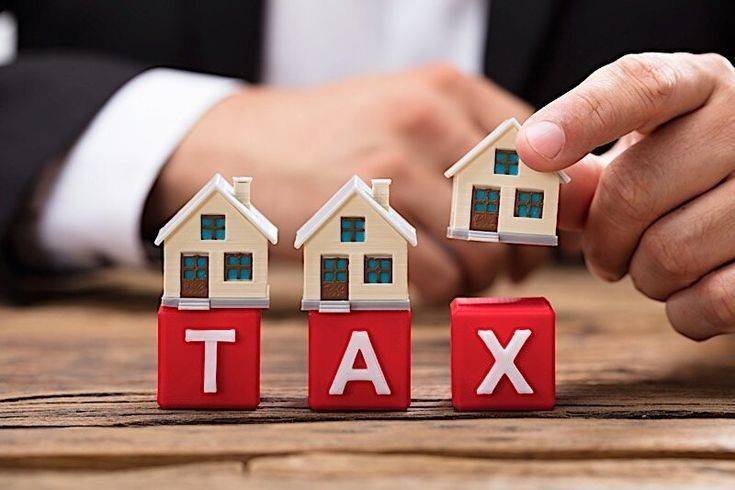The Union Budget 2024 has introduced significant changes to the taxation of rental income from residential properties, aiming to address and rectify tax evasion practices. Finance Minister Nirmala Sitharaman's new regulations are set to alter how rental income is reported and taxed, impacting property owners across India.
Changes in Taxation Rules
Under the new budgetary provisions, rental income from residential properties must now be declared exclusively under the 'Income from House Property' (IHP) head. This is a departure from the previous practice where some taxpayers reported rental income under the 'Profits and Gains from Business or Profession' (PGBP) category. This shift is designed to close a loophole that allows taxpayers to exploit more extensive deductions available under the PGBP category, reducing their taxable income significantly.
Previously, property owners could declare rental income as business income, which enabled them to claim broader deductions such as maintenance costs, electricity bills, and depreciation on furniture and fixtures. These deductions were not available under the IHP category, leading to discrepancies in tax liabilities and revenue losses for the government.
Deductions Under New Tax Regime
Under the new tax regime, the scope of deductions available for property owners has been significantly altered, particularly when comparing the Income from House Property (IHP) category with the Profit and Gains from Business and Profession (PGBP) category.
Deductions Under the Income from House Property (IHP) Head Category
The IHP category provides a more restricted set of deductions compared to the PGBP category. Property owners under this regime can claim:
- Standard Deduction: A standard deduction of 30% of the gross rental income is permitted. This deduction is designed to cover the cost of repairs and maintenance without requiring detailed documentation of expenses.
- Municipal Taxes: Property owners can also claim deductions for municipal taxes paid on the property. This helps in offsetting the taxes levied by local authorities.
- Interest on Home Loans: Interest paid on home loans can be deducted from the rental income, providing relief to property owners who have outstanding mortgage liabilities.
However, under the IHP regime, property owners are not allowed to claim additional expenses related to property management or maintenance. This limitation means that any costs incurred for managing the property, such as administrative expenses or routine upkeep, cannot be deducted from the rental income.
Deductions Under the Profit and Gains from Business and Profession (PGBP) Head Category
In contrast, the PGBP category previously offered a much broader range of deductions. Property owners could claim:
- Maintenance and Repairs: Expenses for maintenance and repairs were deductible, allowing for a more precise calculation of taxable income by accounting for the actual costs involved in keeping the property in good condition.
- Depreciation: Depreciation on the property could be claimed, reflecting the decrease in value of the property over time and further reducing taxable income.
- Other Expenses: A variety of other expenses related to property management, such as administrative costs, were also deductible.
The ability to claim these comprehensive deductions under the PGBP category often led to substantial reductions in taxable income. The shift to the IHP head under the new tax regime aims to streamline deductions and limit the scope of allowable expenses, thereby reducing the extent of income that could be offset and ensuring a more standardized approach to taxation on rental income.
Impact of the New Regulations
The amendment, effective from April 1, 2025, and applicable for the assessment year 2025-26 and subsequent years, is a strategic move to minimize tax disputes and enhance clarity in tax treatment. By limiting the deductions available for rental income to those under the IHP head, the new regulations are expected to lead to a higher tax outflow for property owners. This change is akin to an anti-avoidance measure intended to streamline taxation and reduce revenue losses due to extensive deductions previously available under the business income category.
Expert Opinions
Tax experts have weighed in on the implications of this shift. Kunal Savani, a partner at Cyril Amarchand Mangaldas, highlighted that the previous practice of reporting rental income as business income led to significant revenue loss due to higher deductions. By confining rental income to the IHP head, the government aims to mitigate such revenue losses and enforce a more standardized tax treatment for rental income.
Ritika Nayyar, a partner at Singhania & Co., further elaborated on the impact, noting that while the new regulations might result in a higher tax burden for property owners, they also simplify the tax treatment of rental income. Under the new regime, property owners will face fewer, more straightforward deductions, which could reduce complexities and disputes associated with tax reporting.
Broader Implications
The broader implications of these changes extend beyond individual property owners. The new rules could influence property rental markets, potentially affecting rental prices and the behavior of landlords and tenants. Higher tax liabilities might lead landlords to adjust rental rates to offset increased costs, impacting the rental market dynamics.
Additionally, the new tax framework aligns with the government's broader goal of increasing transparency and reducing tax evasion. By enforcing stricter rules and limiting deductions, the government aims to create a more equitable tax environment, ensuring that rental income is taxed fairly and consistently.
Conclusion
The reforms introduced in the Union Budget 2024 mark a significant shift in the taxation of rental income from residential properties. By closing loopholes and standardizing deductions under the IHP head, these changes seek to enhance tax compliance and reduce revenue losses. While property owners may face a higher tax burden as a result, the new regulations are expected to simplify tax treatments and contribute to a more transparent tax system. As the implementation date approaches, property owners and tax professionals will need to adapt to these new rules and consider their impact on rental income taxation.
Image source- Pinterest









.png)